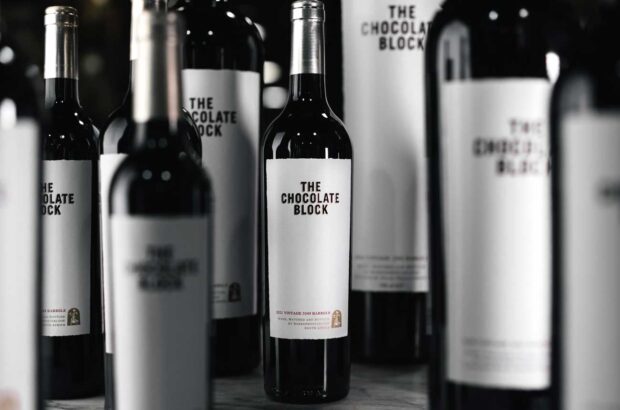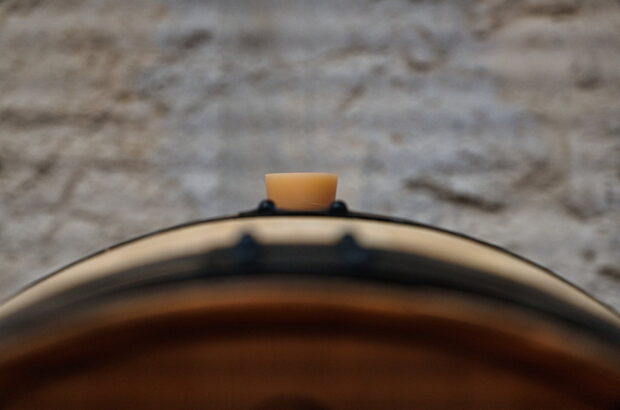Becky Wasserman-Hone is one of the best ambassadors in the world, especially in the US, for Burgundy,’ says none other than Aubert de Villaine of Domaine de la Romanée-Conti. ‘She is someone who has a deep understanding of the “climats de la Bourgogne” and can explain them. She has witnessed the evolution of Burgundy during 50 years. She is still there, a kind of touchstone, and has understood it all.’
These words from de Villaine, himself a member of the Decanter Hall of Fame, encapsulate why Becky Wasserman-Hone has been chosen as the worthy recipient of this year’s award. Those who know her will not be surprised that her first reaction on hearing the news was to protest that she was not ‘in that league’. However, the judges would beg to differ. Not least because she won by a clear margin on the very first ballot, ahead of a long list of other distinguished nominees. None of those nominees could match Wasserman-Hone’s ability and achievement in championing the wines of Burgundy over many decades and, in so doing, putting them on the international stage.
Wasserman-Hone grew up in New York, an only child. Her Romanian mother had been a prima ballerina; her father was a stockbroker who thought wine was a European affectation. A career in the wine trade was not envisaged. The remarkable reputation she now has for understanding Burgundy and making a market for small growers has grown over 40 years since she started her exporting business.
Becky Wasserman-Hone at a glance
Born 18 January 1937, Manhattan, New York City
Parents Father, stockbroker; mother, Romanian former prima ballerina and dancer
Education Rudolf Steiner School, Hunter College High School, New York; Bryn Mawr College, Pennsylvania
Family Husband Russell Hone; sons, Peter and Paul Wasserman; three step-children; five step-grandchildren
Interests cooking, reading, music
Early days
She started by selling French oak barrels. She had moved from the US to France in 1968; the family settled in the little Burgundian village of St-Romain. ‘The experience of living in a French village was a delight,’ she says. ‘There was no supermarket. I had the only washing machine in the village, and an inside bathroom. The little hotel next door used to send Brits over the courtyard to take a bath – we met wonderful people that way! We walked down the hill daily to buy bread. My elder son started in the village school.’
When she needed a job to support herself and her young sons following a divorce, she remembered the oak from French forests which was seasoned in stacks just up the road outside the local barrel makers, François Frères. Jean François gave her a first business opportunity in 1976, sending her on the road in the US with a small barrel to show to winemakers. She enlisted her boys to help write, in their childish hand, letters of introduction she sent to Californian wineries.
Before long she was also representing the Tonnellerie Taransaud, which was owned by Hennessy. Women were a rarity in that world. ‘When I went to the Paris headquarters the MD would never receive me in the offices but in a corner café. I got very offended as I had sold a large number of wooden tanks to Gallo, and complained to Jean Taransaud, a scholar and a gentleman. The next Paris visit, I was escorted into the offices.’ She went on to break down more barriers for women in business.
With the arrival of American critic Robert Parker she felt she had to stop selling barrels. She didn’t like oaky Burgundies, but couldn’t really speak out if she was selling the best French oak barrels. She passed the barrel business on to someone else and concentrated on wine. She was already exporting a few wines after being asked during her trips to America for recommendations.

September 2017, Becky Wasserman-Hone and Michel Lafarge at his family’s Clos du Château des Ducs monopole in Volnay. Credit: Decanter / Michel Joly
Highs and lows
Her company Le Serbet (later Selection Becky Wasserman, now Becky Wasserman & Co) was founded in 1979. Despite being entrusted with wines from estates now so sought-after, then little known – such as Domaine de la Pousse d’Or, Pascal Marchand, Domaine de Montille, Denis Bachelet, Michel Lafarge – all did not go smoothly at first. ‘I made all the mistakes of a beginner!’ she explains.
‘I had a run of “difficult vintages” due to my poor choices of partnerships. I had to recapitalise by necessity twice. I had no personal funds; there was already a mortgage on my house. When the business was threatened because of bad debts following a big bankruptcy in America, there was a very bad night. A fellow in the US who had promised sufficient funds for the recap – I was so embarrassed to ask for funds – called the night before, and said, “We are out, the dollar has dropped”. I have this vivid memory of sitting in the office, alone, late at night, and thinking what in hell am I going to do? A frantic call to the bank bought some time. It was often said in those days that women did not take risks, and were therefore only good in “funded” situations. I think I proved that wrong!’
Happier memories include the connections made with others equally passionate about what they were doing. Steven Spurrier, who had started his L’Académie du Vin in Paris, brought students to Burgundy. They happened to meet in a local restaurant. Those were innocent times, she says, ‘a different era. There were little flashpoint connections – we all hung out, like the literary Paris of the past’ – this from someone who as an ‘adolescent existentialist’ had run around with writers, including Ginsberg and Kerouac, and once sat next to TS Eliot at a Harvard dinner. She went on to study harmony and composition, becoming an accomplished harpsichordist. Echoes of this cultural background lie in the unique way she talks about wines, valuing structure, balance and harmony above all.
Forging ahead
Wasserman-Hone is a great problem-solver. One thing she is proud of is that, working with transport company JF Hillebrand, she found a methodology to ship from small domaines. This was innovative. It allowed importers to select small numbers of cases of different wines from small growers to try on the market. ‘Nobody wanted to order a whole container. I became an expert in grouping shipments – a “grouper”. Initially we found importers by accident, it grew by word of mouth.’
On early sales trips to the US, ‘people thought Burgundy too complicated. Pinot Noir was thought to be fragile, weak. The first vintage I sold was 1976 – the drought year, the tannic year! You had to proselytise. Consumer tastings were essential.’ She remembers people walking out of tastings, and was once pelted with bread rolls by furious men because she was only showing Volnays. Luckily she has a rich sense of humour, and does not give up easily.
The business she saved, Becky Wasserman & Co, has a motto: ‘Non vendimus quod non bibimus’ (We don’t sell what we don’t drink).
She learned from experience that having more than one person tasting worked best. ‘I was always thinking about how consumers would react to the wine. I think about the way it works with food.’ Dominique Lafon, who as a young man was working with her, would see it from an oenologist’s point of view. Thus a team approach was evolved.
Several of the current team have been with Wasserman-Hone since earlier, tougher times and her family are also involved. In 1989 she married Russell Hone, who became part of the company. Her sons, Peter and Paul Wasserman, joined the company in 2001 and 2012 respectively and now play important roles. It is company policy to eat lunch together whenever possible, taking turns to prepare something simple in their small kitchen below the office in Beaune. Wines from growers they are thinking of working with are often put on the table following more clinical tasting, to see how they stand up, and everyone has their say.

Becky Wasserman-Hone, pictured in front of her Burgundy farmhouse in Bouilland. Credit: Decanter / Michel Joly
The communicator
Over the years many wine commentators, importers, and just plain wine enthusiasts have beaten a path through the vineyards of Savigny-lès-Beaune, up a verdant valley to her beautiful stone farmhouse in the village of Bouilland, to pick Wasserman-Hone’s brains. Her love of communication makes her stand out from the crowd.
She and Hone have been astonishingly hospitable. For years they have hosted tastings, lunches and dinners for experts, growers and clients. She is generous with her knowledge. If someone with a new take on Burgundy is writing a book, she will introduce them to growers, feed them, answering questions over comforting meals; if a columnist needs information for their annual review, they talk to her first. Young sommeliers will be given a chance to drink older vintages, and talk to their winemaking heroes. If a Japanese chef from Washington DC wants to bring his brigade to cook a meal for growers, pairing their wines with unlikely flavours – the Wasserman-Hone household will make it possible.
Wine geeks are welcomed for intensive Symposia, but wine novices also feel at home, so they go away enthused. Her role in the promotion of Burgundian wines was recognised as long ago as 1997, when she was awarded the Chevalier de l’Ordre du Mérite Agricole for her services to Burgundy. She is too modest to agree, but she has been rightly credited with helping to shape the current reputation of Burgundy.
‘Attention has settled on 20 or so estates. It has become trophy orientated. The half a million bottles sold at auction has nothing to do with Burgundy,’ she says, pointing out that there are Burgundies to suit all pockets.
‘The 42 premiers crus of Beaune remain reasonably priced; there are 41 in Nuits-St-Georges which are often ignored. Don’t be afraid of unfashionable appellations! There are lesser-known villages to explore, where young growers are doing interesting things. It’s not all about grands crus.’
As de Villaine said, Wasserman-Hone has watched Burgundy change. When she started, growers were too poor to travel and promote their wines. Now her company cannot satisfy demand and has a waiting list. Burgundy got under her skin, and she loves, and knows, the climats like children. ‘It is an agricultural farming community. It is a crop; there is always someone in the fields, except that very quiet, beautiful moment just before the harvest. The geology is so complicated. The song has been written and there are a number of different interpreters.
‘Then there are all the factors to take into account: the history, the rootstock – is it the right one? The weather, the existential thing about when to pick…
‘The wonderful people of this generation are so immersed in the viticulture – it’s eternally fascinating!’ It is Wasserman-Hone’s great gift to transmit that fascination without intimidating people.
Tributes for Becky Wasserman-Hone
‘Burgundy was very lucky that Becky and her family chose in 1968 to come to live in France. Becky was already a remarkable harpsichordist at the time. She quickly became an outstanding cook. She has gradually become fully integrated with Burgundy, which has become her homeland, assimilated her culture, and today she is the most enthusiastic and most accomplished ambassador. No one knows how to talk about Burgundy with so much talent and nobody likes their wines with as much sincerity and deep knowledge as Becky.’ Aubert de Villaine, co-owner of Domaine de la Romanée-Conti and recipient of the Decanter Hall of Fame Award 2010
‘I first met Becky, thanks I think to Aubert de Villaine, early in 1971, but had already heard of her and her then-husband Bart described as “the Americans in Burgundy”. Immediately the warmth and generous hospitality chez Wasserman meant that Bella and I were very regular visitors on my buying trips to Burgundy. Becky helped immensely on these, introducing me to Jacques Seysses in Morey-St-Denis, Hubert de Montille and Gérard Potel in Volnay, and inviting me to take part in her own tastings for her burgeoning business, the wines coming from mainly undiscovered growers, all of whom had become her friends. It was this innate understanding of the many pitfalls these families faced on the way to producing good wines in Burgundy that gained Becky the love and respect which she has always merited. For almost 50 years Becky has been such a force for good throughout the region that she is now a worthy, if belated, recipient of the Hall of Fame Award.’ Steven Spurrier, consultant editor of Decanter and recipient of the Decanter Hall of Fame Award 2017
‘When Becky first came to Burgundy 50 years ago, the region was living on past glories. Now it is the most sought-after fine wine region in the world. Thank you Becky for your part in this story. Writers, importers, sommeliers, producers – you have infected us all with your undimmable enthusiasm. For some of us, we didn’t know that Burgundy was going to be Our Thing until we met you.
I can think of nobody other than Becky who has had quite such an impact on the Burgundian wine scene – those just starting out have been nurtured, those beginning to establish themselves have been nourished, while outsize egos have been taken down a peg or two when necessary. Most importantly Becky has defended the soul of the region: her sense of Burgundian values is worth much more than the price of the wine. We all owe so much to the amazing Becky!’ Jasper Morris MW, former DWWA Regional Chair for Burgundy
‘What I love about Becky, quite apart from her superlative grasp of Burgundy and the extent to which she has mentored so many fine Burgundy producers, consumers and commentators, is that she is so well educated and thoughtful about so many things outside wine. Her grasp of the world is so broad, and I’m thrilled that she and my old friend Russell Hone have created such a special place in one tiny but unique corner of it.’ Jancis Robinson MW OBE, world-renowned wine writer and recipient of the Decanter Hall of Fame Award 1999
‘Becky has had a massive yet often under-appreciated influence on modern Burgundy, championing domaine bottling when it was still rare, seeking out and nurturing some of the region’s greatest talents and carving out and educating new markets, most notably in the US. She is as trusted by her producers as she is by her customers: a person of great integrity, knowledge, warmth and generosity. Becky deserves her own statue in Beaune’s Place Carnot.’ Tim Atkin MW, Burgundy correspondent and contributing editor for Decanter
‘Becky has done more for the promotion of fine Burgundy, particularly in the US, than anybody. Her generosity to visiting prospective buyers is legendary. And her support for these growers goes without saying. A great lady.’ Clive Coates MW, author of The Wines of Burgundy and My Favorite Burgundies
‘Becky is Burgundy’s best-kept secret – at least in Britain. America knows her as the discoverer of estate Burgundies, hardly known before she started importing them. She and Russell keep a table worthy of Chaucer’s Franklin (“It snewed in his hous of meet and drinke”) – but with much better wine.’ Hugh Johnson OBE, world-renowned wine writer and recipient of the Decanter Hall of Fame Award 1995
‘I have no doubt that there will someday be a statue of Becky Wasserman in the centre of Beaune. Burgundian wine-growers owe her no less a debt than American wine lovers. Arriving in the dark ages of the 1970s, she played no small part in improving quality in her adoptive home, becoming a quiet but influential champion of tradition, of the small artisanal producer, and of natural farming methods, even as she taught the American market about the complex joys of the Côte d’Or. Becky was a pioneer, a passionate and tireless advocate for all that is best in Burgundy.’ Jay McInerney, novelist, wine writer and critic for The Wall Street Journal
‘What I treasure most about Becky is her profound understanding of the life and traditions of Burgundy to their historic depths, and her uncanny ability to transmit to others her sense of this way of life. In this era of trophy wines and billionaires collecting cherished vineyards like baubles, Becky has kept us grounded, reminding us that Burgundy (and wine) are far deeper, richer, more interesting and more rewarding than ticking off a list of great bottles tasted. Thank you, Becky, for reminding us that the beauty of wine is in the culture it expresses in all dimensions.’ Eric Asimov, wine critic for The New York Times
Rosi Hanson is a freelance wine, food and travel writer












